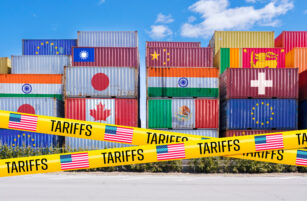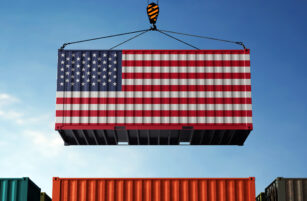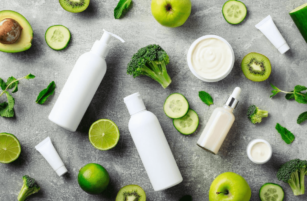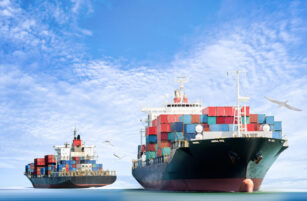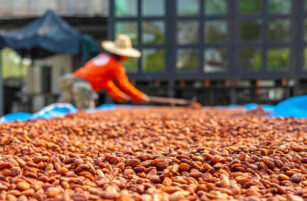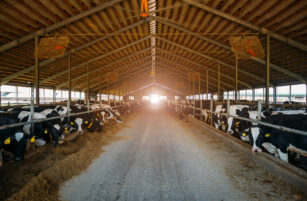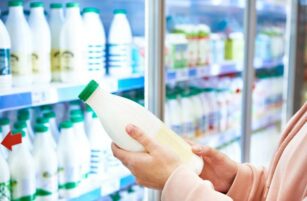Insight Focus
- Coke, Danone’s sales grow despite price rises
- Insurance on offer for shipping grain from Ukraine’s Black Sea ports
- Russia halves gas flows to Germany via Nord Stream 1 to 20% of capacity
There was a flurry of corporate results last week, giving an insight into how companies in the food supply chain are dealing with rising commodity prices.

US retailer Walmart, which is also the world’s second largest by sales, said in a revised outlook for its second-quarter and full-year earnings. The company said that it was slashing its full-year earnings forecast, saying they would fall 11-13% rather than the 1% previously forecast. “The increasing levels of food and fuel inflation are affecting how customers spend, and while we’ve made good progress clearing hardline categories, apparel in Walmart U.S. is requiring more markdown dollars. We’re now expecting more pressure on general merchandise in the back half…,” CEO Doug McMillon said in the statement.
By contrast Paris-based food and beverage producer Danone lifted its full-year sales forecast amid strong demand for baby formula and bottled water even though the company increased prices, Bloomberg reported.
Coca-Cola raised its full-year revenue forecast on buoyant demand for its soft drinks despite price hikes due to higher input costs. Global sales volumes grew 8% in Q2, the company said, while average selling prices increased about 12%. Reuters quoted CEO James Quincey as saying the company would increases
prices further in markets where costs were rising and aim to pass most of them to consumers before a potential recession.

In the UK, McDonald’s put up the price of its cheeseburgers for the first time in 14 years, by 20.2% to GBP 1.19 (USD 1.45), the BBC reported. However, the BBC pointed out that if the price had risen in line with inflation it would now be GBP 1.42. Globally, the company’s Q2 sales rose 9.7% on the year, but CEO Chris Kempczinski said in the earnings statement that the operating environment was “challenging”.
Insurance for Ukrainian Shipping

Lloyd’s of London insurer Ascot and broker Marsh launched marine cargo and war insurance for grain and food products moving from Ukrainian Black Sea ports, removing a hurdle to beginning shipments.
In the run-up to the announcement, Lloyd’s CEO John Neal told the Financial Times (behind paywall) that he was “confident” about the risks being covered. However, he did say that the policies were more “complex” than normal, which would be reflected in the price.
A Russian official, though, was quoted by the Interfax news agency as saying he could not rule out the deal between Russia, Ukraine, Turkey and the UN to allow grains shipments from the ports falling apart. “We always hope for the best and expect that our partners will also fulfil two components of this grain deal, i.e. the delivery of grain from Ukraine and the lifting of restrictions on the export of Russian grain in general,” Deputy Foreign Minister Andrei Rudenko told reporters.
Governments Move to Mitigate Price Surge

The surge in energy and food prices is forcing some governments to take action to mitigate the effects on consumers. Egypt will add one million families to a social safety net programme that provides cash transfers, bringing the total number of beneficiaries to more than 20 million, Reuters reported.
It added that in Panama, the government announced it would regulate the price of 72 food items following weeks of angry protests and street blockades. Reuters also said that the government had already put in place price controls on a dozen food items.
EU Braces for Russian Gas Cut-off
EU governments reached a compromise agreement on reducing natural gas consumption this winter to protect themselves against any further supply cuts by Russia, although the measure contains exemptions for some countries, the Associated Press reported.

On July 27, the day after the agreement, direct Russian gas flows to Germany via the Nord Stream 1 pipeline were cut to around 20% of capacity from around 40%, Reuters reported. It added that the head of Germans grid regulator BNetzA, Klaus Müller, said Germany could still avoid gas rationing, while making another plea to households and industry to “save gas”.
Other Insights that may be of interest…
Have the Indicators the Supply Chain Should Monitor Changed?


